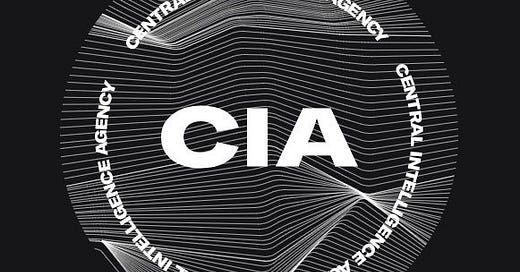Welcome to Just Two Things, which I try to write daily, five days a week, if I can manage it. Some links may also appear on my blog from time to time. Links to the main articles are in cross-heads as well as the story.
I’ve now had the chance to read the short journal paper on our “ghastly future” that was splashed in The Guardian last week. My two line summary is this: the authors argue—heavily referenced—that although we are now responding to the climate crisis, the biodiversity crisis is much more widespread, much starker, and is likely to be more urgent. The article has a dismaying chart that summarises bio-loss. But we’re doing very little about it:
Stopping biodiversity loss is nowhere close to the top of any country's priorities, trailing far behind other concerns such as employment, healthcare, economic growth, or currency stability. It is therefore no surprise that none of the Aichi Biodiversity Targets for 2020 set at the Convention on Biological Diversity's 2010 conference was met (Secretariat of the Convention on Biological Diversity, 2020). Even had they been met, they would have still fallen short of realizing any substantive reductions in extinction rate.
Dennis Meadows, who was part of the Limits to Growth team, argues that technology doesn’t solve biocapacity problems. Instead, it postpones the problem, and then accelerates the collapse. That maybe what is happening here, with fossil energy and its by-products:
This massive ecological overshoot is largely enabled by the increasing use of fossil fuels. These convenient fuels have allowed us to decouple human demand from biological regeneration: 85% of commercial energy, 65% of fibers, and most plastics are now produced from fossil fuels. Also, food production depends on fossil-fuel input, with every unit of food energy produced requiring a multiple in fossil-fuel energy… While climate change demands a full exit from fossil-fuel use well before 2050, pressures on the biosphere are likely to mount prior to decarbonization.
I think there’s a legal requirement that academics writing this kind of piece have to insist that it’s not too late and that there are Things We Can Still Do. (When they stop doing this, we’ll know that the handcart is already most of the way to hell). These are the things:
The gravity of the situation requires fundamental changes to global capitalism, education, and equality, which include inter alia the abolition of perpetual economic growth, properly pricing externalities, a rapid exit from fossil-fuel use, strict regulation of markets and property acquisition, reigning in corporate lobbying, and the empowerment of women.
The article is a tightly written six pages. It’s open access. If you need to read something sobering today, I recommend it.
It used to have all the charm of a 1960s office block. Now it looks all scrubbed brick and urban warehouse. I’m talking about the brand and look of the CIA—yes, the United States Central Intelligence Agency, whose new online appearance wouldn’t be out of place on a boutique digital media agency. You can judge for yourself.
The new website is lots of black, big modern typefaces, mobile friendly—which encouraged the LA Times to work a reference to the CIA’s “black sites” into its coverage. The intention, at least in part, is to attract a more diverse set of wannabe agents, which is a good idea, since historically the CIA is the least diverse government agency in the US. Certainly the web site has fewer white faces on it, to judge from the screenshots at It’s Nice That.
Design Twitter, of course, got lost in the detail, with quite a lot of name checking of Peter Savile’s work at Factory on Joy Division. But I think that this is part of a different trend. Ever since the end of the Cold War, and certainly since the invention of “The War on Terror”, we’ve seen a lot of performative security. Intelligence agencies have definitely come in from the cold. We didn’t used to know where MI6’s “Circus” was: now it lives in an in-your-face building on the Thames.
As Ralph Fiennes’ character says in the very on-trend Skyfall, “There are no more shadows”. This is the point: it’s in the interests of the security services, these days, that we all feel a bit insecure.
j2t#012
If you are enjoying Just Two Things, please do send it on to a friend or colleague.



